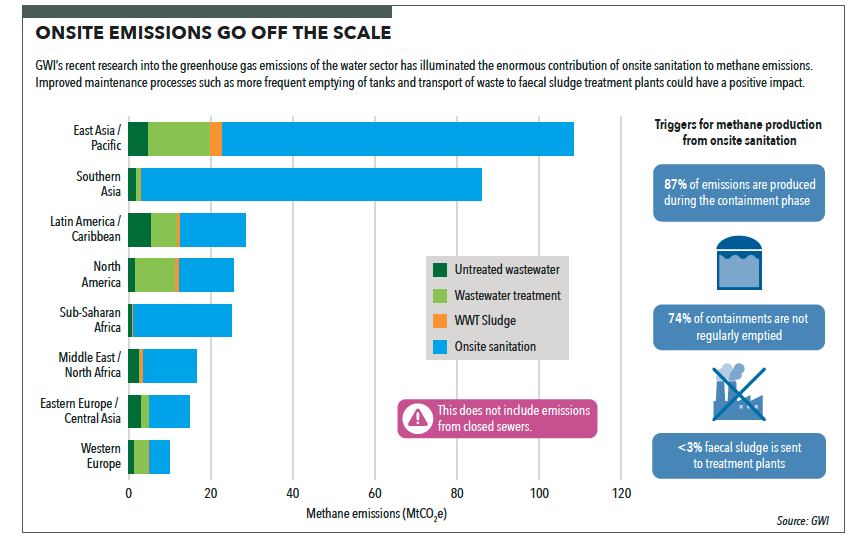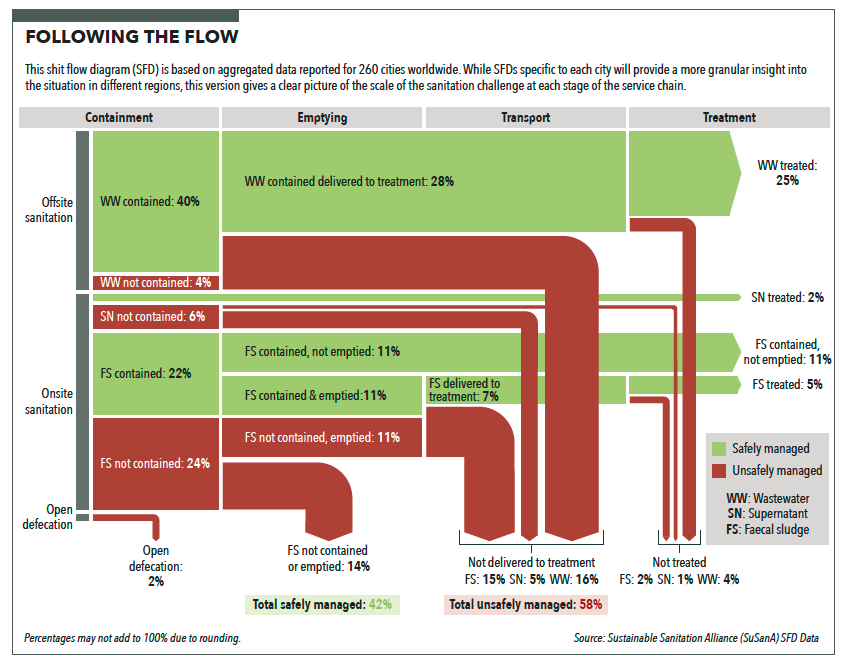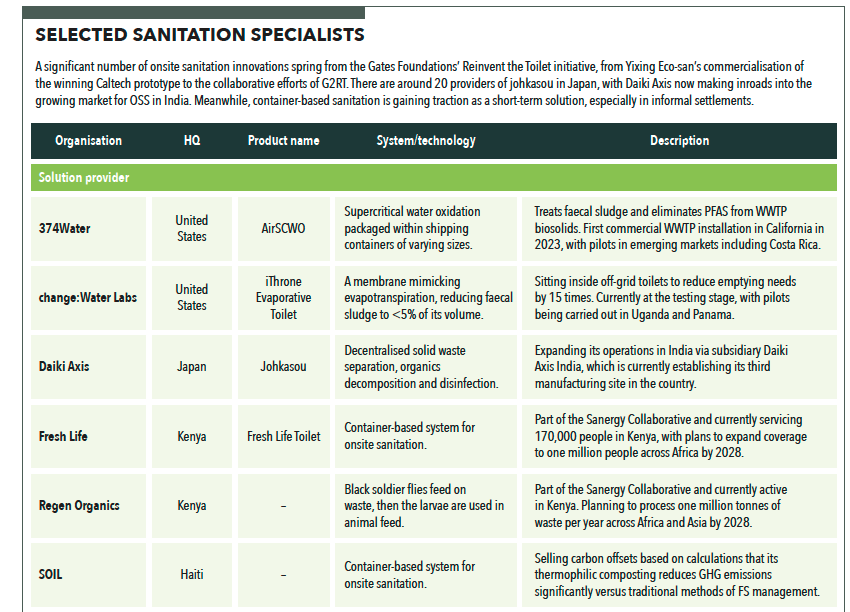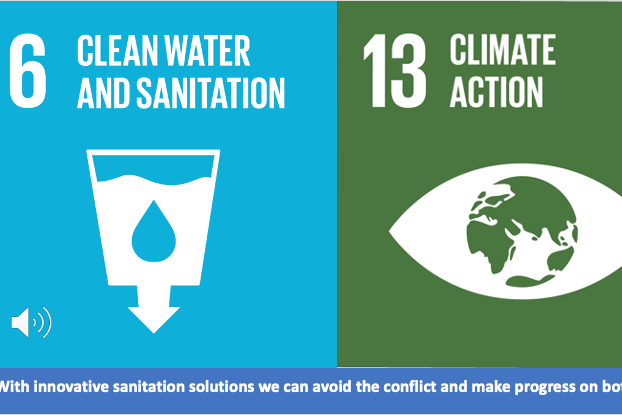Reposted and adapted from CBSA member SOIL’s blog.
Global Water Intelligence (GWI), a global water industry publisher and event organizer, is always exploring new ways to push the water sector forward and share its findings with stakeholders in the industry. In an article in the latest installment of their magazine, GWI investigated answers to the question: “What should the future of safely managed sanitation systems look like?” The article examines growing opportunities for onsite sanitation (OSS) technologies and highlights Container Based Sanitation (CBS) as an effective, low-cost and integrated solution to implementing safely managed sanitation, particularly in countries with dense populations that lack sewer infrastructure.
Spurred by efforts to meet the UN Sustainable Development Goals (SDG) by 2030, one of the water sector’s most pressing challenges is finding a way to deliver affordable, manageable sanitation policies to the 4.2 billion people on the planet who currently do not have access to adequate sanitation. A further challenge is mitigating the methane emissions from traditional types of OSS like pit latrines and septic tanks which, according to GWI’s research, emit 36% of the water sector’s greenhouse gas emissions.

A silver lining of these emissions findings is that it could open climate finance opportunities for onsite sanitation because one key advantage of CBS is that it produces fewer GHG emissions due to most systems’ use of urine diversion and because the containers are emptied frequently. SOIL has calculated that its thermophilic composting method reduces GHG direct emissions by 124kg CO2 equivalents per person per year compared to traditional methods of faecal sludge management. SOIL is using these GHG mitigation calculations to create groundbreaking partnerships that offset carbon emissions, while simultaneously contributing to SDG6.
By taking a holistic, circular economy approach to sanitation provision, CBS is particularly in line with SDG6, which reflects an emerging global consensus that toilets alone are not a sufficient sanitation solution. Without effective management of the wider sanitation chain including containment, emptying, transport, and treatment, the waste contained in toilets ends up in the environment causing major environmental and public health hazards.

SDG6 highlights the importance of “safely managed sanitation services” and a sub-target on halving the proportion of untreated wastewater and substantially increasing recycling and safe reuse of wastes globally. The CBS full value chain approach to sanitation is one of the few interventions globally that fully complies with the updated Sustainable Development Goal for sanitation.

CBSA member SOIL says:
We’re proud that by building a circular sanitation business model, SOIL has demonstrated that it is possible to provide cost-effective safe, dignified, sustainable, full-cycle sanitation services in some of the most impoverished urban communities in the world. And over the coming years we won’t stop fighting until we have a scalable and replicable model to provide sanitation access for the 700+ million people living in urban communities who currently lack sanitation access. Our planet depends upon it.
Thank you to Global Water Intelligence for their innovative vision and support of climate-resilient and safely managed sanitation solutions that can meet the current and future needs of millions around the globe!
In addition to partnerships such as those created by SOIL, the CBS Alliance is also studying how carbon credits could become a viable revenue source for CBS providers.
See SOIL’s blog for the original post and more information on their GWI partnership.
